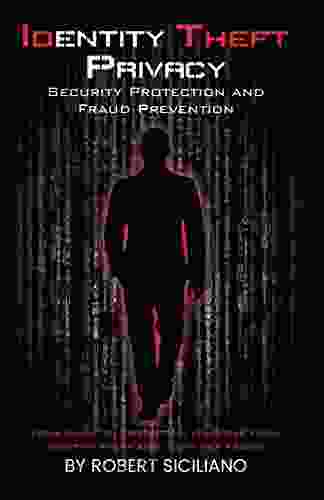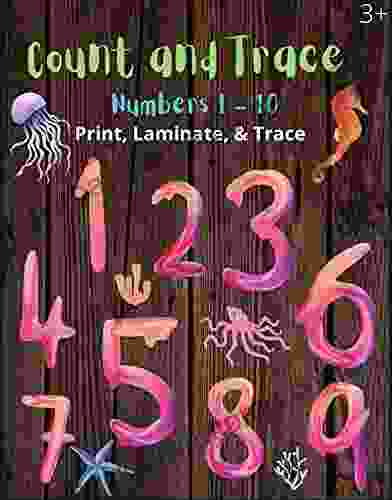Your Guide To Protecting Yourself From Identity Theft And Computer Fraud

Identity theft and computer fraud are becoming increasingly common. In 2021, there were over 2 million identity theft complaints reported to the FTC, and losses due to computer fraud totaled over $6 billion.
4.3 out of 5
| Language | : | English |
| File size | : | 1837 KB |
| Text-to-Speech | : | Enabled |
| Screen Reader | : | Supported |
| Enhanced typesetting | : | Enabled |
| Word Wise | : | Enabled |
| Print length | : | 129 pages |
These crimes can have a devastating impact on victims. Identity theft can lead to financial loss, damage to your credit score, and even criminal charges. Computer fraud can result in stolen money, lost files, and damaged equipment.
The good news is that there are steps you can take to protect yourself from these crimes. This guide will provide you with tips on how to keep your personal information safe, spot potential scams, and respond if you become a victim of identity theft or computer fraud.
How to Protect Yourself from Identity Theft
- Use strong passwords and never share them with anyone.
- Be careful about what information you share online.
- Shred any documents that contain your personal information before you throw them away.
- Don't carry your Social Security card or other sensitive documents with you unless you need them.
- Be aware of the signs of identity theft, such as unauthorized withdrawals from your bank account or new accounts being opened in your name.
How to Spot Potential Scams
- Be wary of emails, phone calls, or text messages that ask you to click on links or provide personal information.
- Never click on links in emails or text messages from unknown senders.
li>If you're not sure whether an email or phone call is legitimate, contact the company or organization directly.
How to Respond if You Become a Victim of Identity Theft or Computer Fraud
- Contact your local police department and file a report.
- Contact the fraud department of the credit bureaus and ask for a free fraud alert to be placed on your credit report.
- Contact your bank and credit card companies and let them know that you've been a victim of identity theft.
- Change your passwords and security questions for all of your online accounts.
- Monitor your credit report and bank statements for any suspicious activity.
Identity theft and computer fraud are serious crimes, but they can be prevented. By following the tips in this guide, you can help protect yourself from these crimes and keep your personal information safe.
4.3 out of 5
| Language | : | English |
| File size | : | 1837 KB |
| Text-to-Speech | : | Enabled |
| Screen Reader | : | Supported |
| Enhanced typesetting | : | Enabled |
| Word Wise | : | Enabled |
| Print length | : | 129 pages |
Do you want to contribute by writing guest posts on this blog?
Please contact us and send us a resume of previous articles that you have written.
Light bulbAdvertise smarter! Our strategic ad space ensures maximum exposure. Reserve your spot today!

 Lee SimmonsThe Battle of Marne 1914 Battlefield Guide: Witness History Unfold in Every...
Lee SimmonsThe Battle of Marne 1914 Battlefield Guide: Witness History Unfold in Every... Elliott CarterFollow ·2.9k
Elliott CarterFollow ·2.9k Yasunari KawabataFollow ·7k
Yasunari KawabataFollow ·7k Barry BryantFollow ·15.2k
Barry BryantFollow ·15.2k Rubén DaríoFollow ·12.5k
Rubén DaríoFollow ·12.5k F. Scott FitzgeraldFollow ·4k
F. Scott FitzgeraldFollow ·4k Oliver FosterFollow ·14.6k
Oliver FosterFollow ·14.6k Stuart BlairFollow ·14.5k
Stuart BlairFollow ·14.5k August HayesFollow ·8.3k
August HayesFollow ·8.3k

 Isaiah Powell
Isaiah PowellWisconsin Clinic Pilots Mobile Crisis Response System For...
MADISON, Wis. - A new mobile crisis...

 Daniel Knight
Daniel KnightUnleash Your Creativity: A Masterclass in Fabulous Nail...
Embellish Your Fingertips with Captivating...

 Clark Campbell
Clark CampbellDetect When You Are Being Emotionally Manipulated By...
Emotional manipulation is a subtle but...

 Eli Brooks
Eli BrooksNeurological Disorders Papers: Dissociative Identity...
What is Dissociative...

 Ricky Bell
Ricky BellAn Introduction to Islam for Jews: Unveiling the Tapestry...
A Bridge of Understanding: Exploring Islam for...

 Octavio Paz
Octavio PazAchieving Longevity: The Complete Step-by-Step Guide to...
**** In the ever-evolving landscape of health...
4.3 out of 5
| Language | : | English |
| File size | : | 1837 KB |
| Text-to-Speech | : | Enabled |
| Screen Reader | : | Supported |
| Enhanced typesetting | : | Enabled |
| Word Wise | : | Enabled |
| Print length | : | 129 pages |
















































